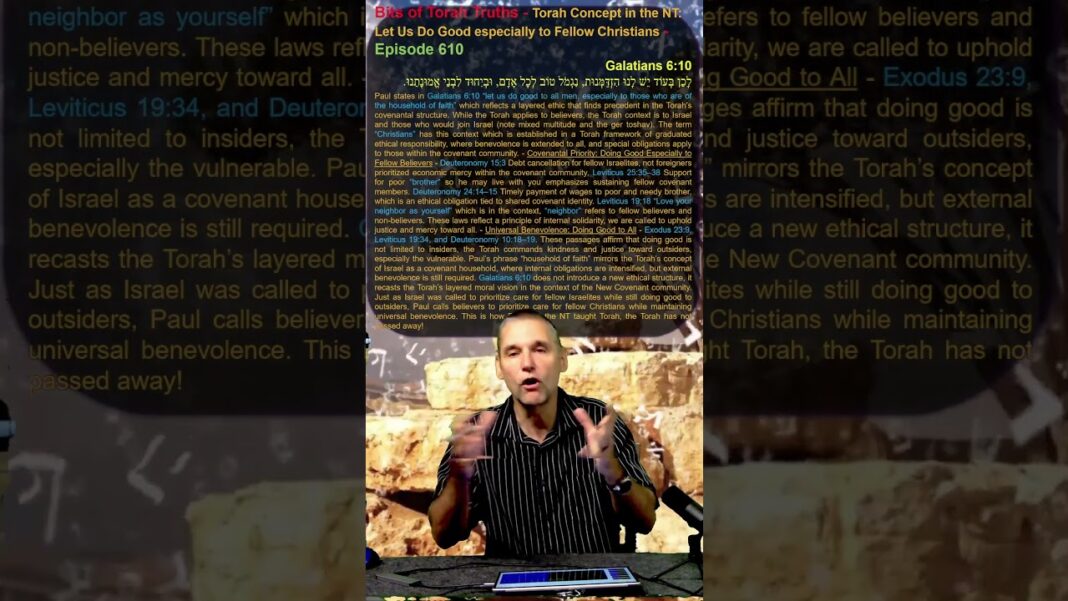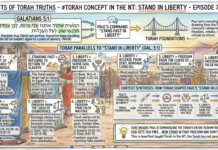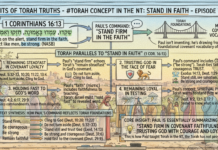Bits of Torah Truths – Torah Concept in the NT: Let Us Do Good especially to Fellow Christians – Episode 610
Galatians 6:10
לָכֵן בְּעוֹד יֵשׁ לָנוּ הִזְדַּמְּנוּת, נִגְמֹל טוֹב לְכָל אָדָם, וּבְיִחוּד לִבְנֵי אֱמוּנָתֵנוּ.
#torah#torahwisdom#torahtruth#torahforlife#torah4you#torahtruth
Galatians 6:10
6:10 So then, while we have opportunity, let us do good to all people, and especially to those who are of the household of the faith. (NASB)
https://www.matsati.com/index.php/category/bits-of-torah-truths/
Paul states in Galatians 6:10 “let us do good to all men, especially to those who are of the household of faith” which reflects a layered ethic that finds precedent in the Torah’s covenantal structure. While the Torah applies to believers, the Torah context is to Israel and those who would join Israel (note mixed multitude and the ger toshav). The term “Christians” has this context which is established in a Torah framework of graduated ethical responsibility, where benevolence is extended to all, and special obligations apply to those within the covenant community. – Covenantal Priority: Doing Good Especially to Fellow Believers – Deuteronomy 15:3 Debt cancellation for fellow Israelites, not foreigners prioritized economic mercy within the covenant community, Leviticus 25:35–38 Support for poor “brother” so he may live with you emphasizes sustaining fellow covenant members. Deuteronomy 24:14–15 Timely payment of wages to poor and needy brother, which is an ethical obligation tied to shared covenant identity. Leviticus 19:18 “Love your neighbor as yourself” which is in the context, “neighbor” refers to fellow believers and non-believers. These laws reflect a principle of internal solidarity; we are called to uphold justice and mercy toward all. – Universal Benevolence: Doing Good to All – Exodus 23:9, Leviticus 19:34, and Deuteronomy 10:18–19. These passages affirm that doing good is not limited to insiders, the Torah commands kindness and justice toward outsiders, especially the vulnerable. Paul’s phrase “household of faith” mirrors the Torah’s concept of Israel as a covenant household, where internal obligations are intensified, but external benevolence is still required. Galatians 6:10 does not introduce a new ethical structure, it recasts the Torah’s layered moral vision in the context of the New Covenant community. Just as Israel was called to prioritize care for fellow Israelites while still doing good to outsiders, Paul calls believers to prioritize care for fellow Christians while maintaining universal benevolence. This is how Paul and the NT taught Torah, the Torah has not passed away!









